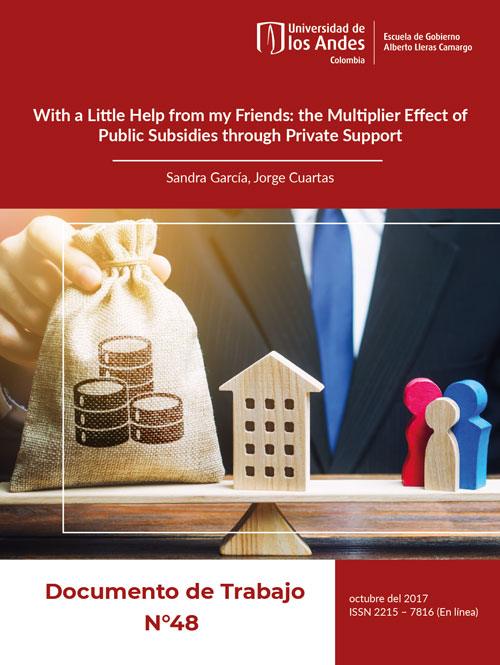With a Little Help from my Friends: the Multiplier Effect of Public Subsidies through Private Support
Conditional cash transfer (CCT) programs have become an important component of social assistance in developing countries. CCTs, as well as other cash subsidies, have been criticized for allegedly crowding out private transfers. Whether social programs crowd out private transfers is an important question with worrisome implications, as private support represents an important fraction of households’ income and works as a risk sharing mechanism in developing countries. Furthermore, empirical evidence on the effect of public transfers on private transfers is mixed. This paper contributes to the literature by using a unique dataset from the quasi-experimental evaluation of a CCT in Colombia and an empirical strategy that allows us to correct for pre-existing differences between treated and control groups. Our results suggest that the public transfer did not crowd out private transfers, neither in the short-run nor in the middle-run. Instead, it increased the probability of receiving support in cash, in kind, and in non-paid labor from different private sources by approximately 10 percentage points. Moreover, we find that the monetary value of private transfers increased by 20% for treated households, suggesting that the public transfer had a multiplier effect on household income through private support. Information about the program design suggests that some of its features, such as community meetings and delivery of information, may be important in explaining these effects. The findings give insights on the way social programs could have a twofold positive effect on households’ well-being, both through their direct impacts and by affecting inter-household dynamics.
Autor: Sandra García, Jorge Cuartas

